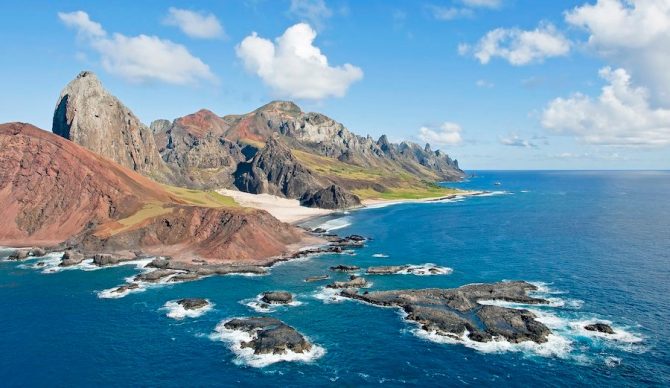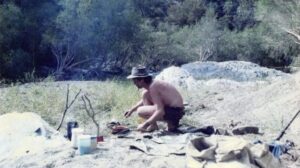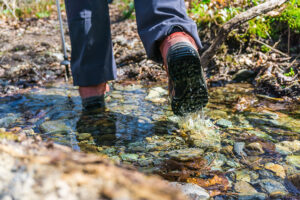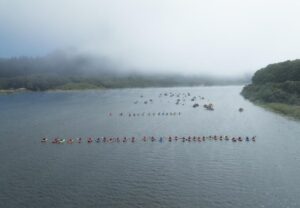Scientists say they have discovered rocks made of plastic on a remote turtle refuge 1,100km from the Brazilian mainland.
This article was originally published on The Inertia.
Yes, “rocks” — as in, solidified pieces of the earth’s most foundational substance. The geologist who made the discovery called it “terrifying.”
Fernanda Avelar Santos, a graduate student at Brazil’s Federal University of Parana, found the plastic deposits on a beach in Trinidade. No one lives on the island except a small group of Brazilian Navy members tasked to maintain a base there and protect nesting green sea turtles.
“Thousands” of the turtles arrive there each year to lay their eggs, according to the outlet. The volcanic island functions as a haven for a diverse range of species, partly due to its relative lack of natural predators.

Trinidade Island, Brazil’s easternmost territory. Photo: Simone Marinho via Wiki Commons
Melted fishing nets
But remote and peaceful as it may be, it is far from safe from ocean plastics.
Santos’ team found their discoveries mostly included plastics that had melted down from fishing nets. In a study published on Sciencedirect, they described the finds as “identical to natural [rocks] but composed of plastic.”
Unable to classify them based on existing records, they called them “plastiglomerites.”
Loose nets are “very common debris on Trinidade Island’s beaches,” Santos said. “The [nets] are dragged by the marine currents and accumulate on the beach. When the temperature rises, this plastic melts and becomes embedded with the beach’s natural material.”
Santos framed it as a troubling landmark in the planet’s geologic development. If the scientific community accepts her team’s findings, it would confirm that plastic pollution has penetrated the earth’s bedrock substances. According to National Geographic, that would mark the beginning of a new epoch in earth’s history — the Anthropocene, or the period defined by human impacts.

Photo: screenshot
“The pollution, the garbage in the sea and the plastic dumped incorrectly in the oceans is becoming geological material…preserved in the earth’s geological records,” she explained. “We talk so much about the Anthropocene, and this is it.”






